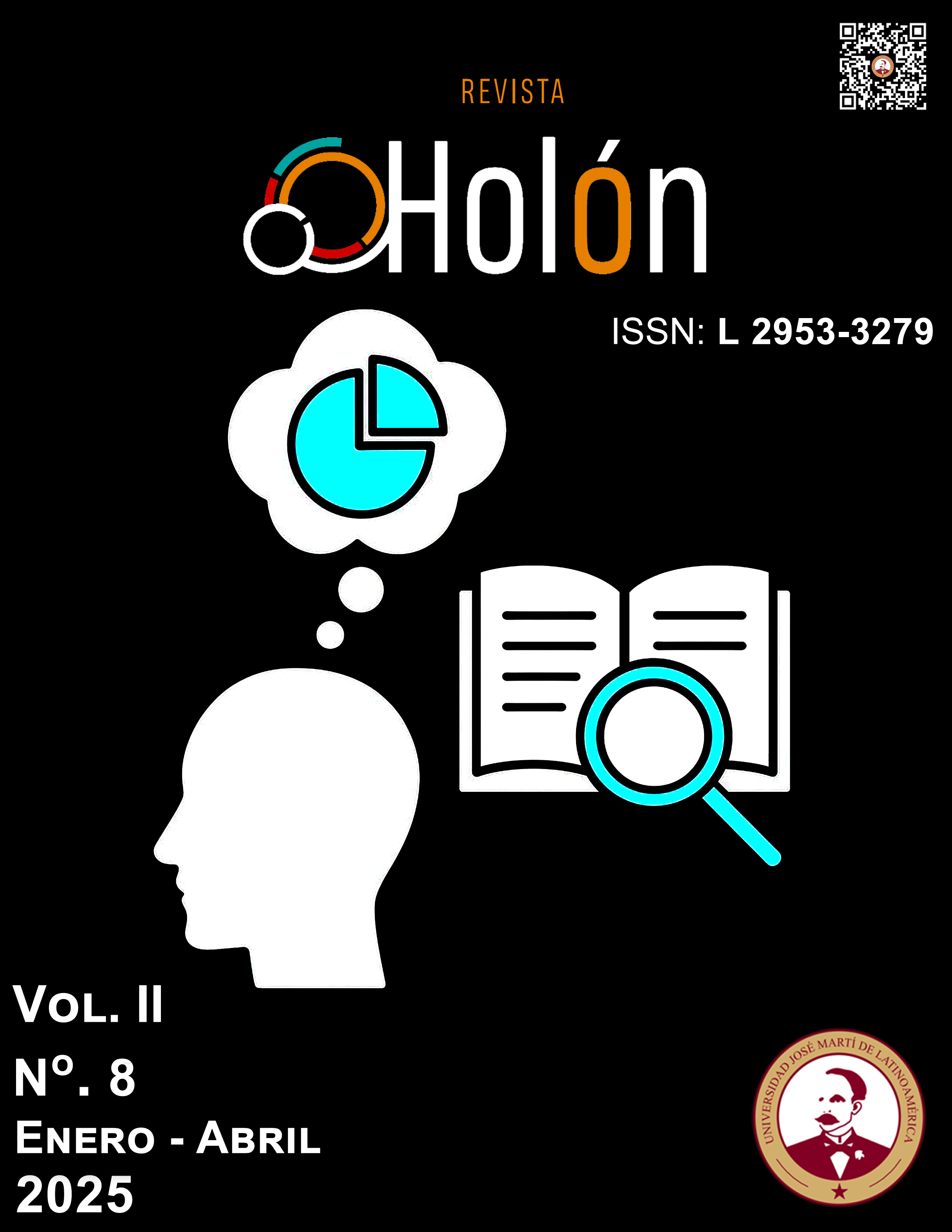

(c) Tous droits réservés Revista Holón 2025

Ce travail est disponible sous licence Creative Commons Attribution - Pas d’Utilisation Commerciale - Partage dans les Mêmes Conditions 4.0 International.
Un article scientifique est présenté qui présente les résultats d'un projet académique dans le cadre du doctorat en éducation à l'Université José Martí d'Amérique latine. Au cours du processus de recherche, un large éventail de bibliographies spécialisées a été examiné, permettant l’interprétation et la systématisation du sujet d’un point de vue qualitatif. À travers une revue théorique et empirique, les besoins des enseignants sont examinés et l’importance de la formation des enseignants en neuroéducation est défendue comme moyen d’optimiser les processus d’enseignement-apprentissage, sur la base des principes des neurosciences cognitives et de la pédagogie. Les défis auxquels les enseignants sont confrontés lors de l’intégration de ces approches innovantes sont mis en évidence, notamment la résistance au changement, la nécessité d’une mise à jour continue et d’une mise en œuvre efficace dans divers contextes éducatifs. Les résultats suggèrent qu’une connaissance et une compréhension adéquates de la neuroéducation peuvent améliorer les performances professionnelles des enseignants, améliorer la qualité de l’éducation et promouvoir un apprentissage significatif. Il conclut par une proposition visant à ce que les enseignants agissent comme médiateurs entre les connaissances scientifiques et la pratique pédagogique, en créant des environnements éducatifs émotionnellement favorables visant à améliorer le développement global des élèves.